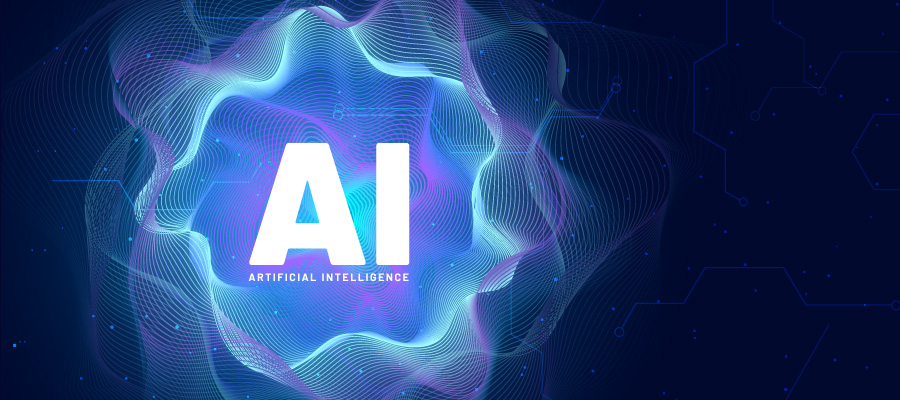Update: Watch a professionally captioned recording of this session. You can also watch the recording with audio descriptions.
Join us on Friday, September 8, for a virtual panel discussion with representatives from Epic Systems, UW Health and the School of Medicine and Public Health about how AI is reshaping healthcare. This webinar will explore practical AI innovations and discuss their impact on providers and patients. Learn how ChatGPT is in “an in-basket near you” through a combination of Epic’s dedication to a vision and UW Health’s expertise in implementation science.
This is the 11th installment in our webinar series about AI. You can learn more about the series, catch up on past seminars, and see what we have planned next on our “Exploring Artificial Intelligence @ UW–Madison” page.
AI in Healthcare: Evolving Care Landscapes
- Date: Friday, Sep 8
- Time: 9:15am to 10am Central Time
- Location: Zoom
- Cost: Free
Add this event to your calendar
This virtual event will be auto-captioned. Please email us if you need additional accommodations to participate. We will share a professionally captioned video recording and any presented materials and resources on this page the week after the webinar.
About the speakers
Garrett Adams
 Garrett Adams leads the EpicCare Ambulatory Research and Development division at Epic Systems and is deeply involved in defining how AI can be responsibly applied to healthcare in a way that advances patient care, enables efficiency and unlocks new opportunities. He is the spokesperson for Epic’s new DAX Express service, an AI-powered clinical documentation solution that creates draft clinical notes automatically from patient encounters for clinician review. A partnership with Microsoft’s Nuance Communications, DAX aims to improve healthcare by reducing administrative workloads that lead to burnout and expanding access to care by allowing physicians to focus on patients instead of paperwork.
Garrett Adams leads the EpicCare Ambulatory Research and Development division at Epic Systems and is deeply involved in defining how AI can be responsibly applied to healthcare in a way that advances patient care, enables efficiency and unlocks new opportunities. He is the spokesperson for Epic’s new DAX Express service, an AI-powered clinical documentation solution that creates draft clinical notes automatically from patient encounters for clinician review. A partnership with Microsoft’s Nuance Communications, DAX aims to improve healthcare by reducing administrative workloads that lead to burnout and expanding access to care by allowing physicians to focus on patients instead of paperwork.
Joel Gordon
 Joel Gordon, M.D., serves as the chief medical information officer and executive vice president at University of Wisconsin Hospital and Clinics. Before joining UW, Gordon spent more than 25 years at Mayo Clinic Health System, serving as a family physician, informatics usability researcher and chief medical information officer. Gordon’s career combines his medical expertise with a passion for health informatics and maximizing technology adoption. His informatics interest and research focus is on maximizing the broad adoption of technologies by more precisely fitting users and tools. Using a technique termed “yous”-ability he uses usability tactics combined with social engineering and theories of innovation adoption to maximize ROI on technology opportunities.
Joel Gordon, M.D., serves as the chief medical information officer and executive vice president at University of Wisconsin Hospital and Clinics. Before joining UW, Gordon spent more than 25 years at Mayo Clinic Health System, serving as a family physician, informatics usability researcher and chief medical information officer. Gordon’s career combines his medical expertise with a passion for health informatics and maximizing technology adoption. His informatics interest and research focus is on maximizing the broad adoption of technologies by more precisely fitting users and tools. Using a technique termed “yous”-ability he uses usability tactics combined with social engineering and theories of innovation adoption to maximize ROI on technology opportunities.
Frank Liao
 Frank Liao, Ph.D., is the Senior Director of Digital Health and Emerging Technologies at UW Health. He has more than 5 years of experience at UW Health in leadership roles focused on digital health, data science, machine learning and software engineering. He is also a clinical adjunct assistant professor at UW–Madison and focuses on innovation in emergency medicine. Before joining UW–Madison and UW Health, Liao held leadership positions at Sutherland Healthcare Solutions and Epic Systems. Liao has authored numerous publications related to predictive analytics and machine learning applications in healthcare. He is considered an expert in clinical AI and has been recognized for advancing data science initiatives.
Frank Liao, Ph.D., is the Senior Director of Digital Health and Emerging Technologies at UW Health. He has more than 5 years of experience at UW Health in leadership roles focused on digital health, data science, machine learning and software engineering. He is also a clinical adjunct assistant professor at UW–Madison and focuses on innovation in emergency medicine. Before joining UW–Madison and UW Health, Liao held leadership positions at Sutherland Healthcare Solutions and Epic Systems. Liao has authored numerous publications related to predictive analytics and machine learning applications in healthcare. He is considered an expert in clinical AI and has been recognized for advancing data science initiatives.
About the series
The “Exploring Artificial Intelligence @ UW–Madison” webinar series will run from June to September 2023, featuring webinars exploring a wide range of perspectives and topics relating to the rapidly advancing field of generative AI.
Sponsored by the university’s Division of Information Technology and Data Science Institute, the series aims to provide a platform for experts and visionaries in the field of AI to share their insights, research and experiences in the classroom, research lab and wider academic community.
By delving into topics such as AI ethics, cutting-edge machine learning algorithms, automation and human-machine collaboration, we hope to foster a deeper understanding of AI’s transformative potential and its implications for higher education.
